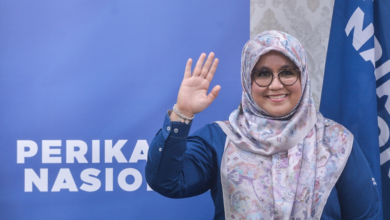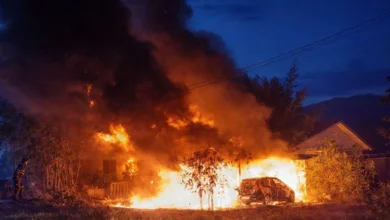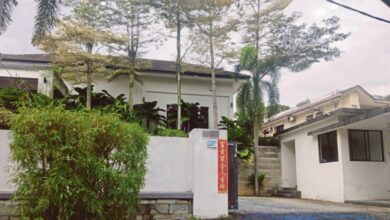Analysts: What Does Redelineation Exercise Really Achieve? Do We Really Need More MPs?

(MMO) – While PAS’ insistence on redrawing electoral boundaries might have some merit, its focus should expand beyond the eastern states if it is serious about addressing malapportionment, said academics and rights advocates.
The analysts agreed with PAS’ Datuk Khairuddin Aman Razali’s suggestion for electoral boundaries in Kedah, Pahang, Kelantan and Terengganu to be re-delineated, but stressed that in the interest of justice, parliamentary and state lines in Selangor should be given a higher priority.
Praba Ganesan, chief executive of democratic rights group Kuasa, said if Khairuddin is serious about championing the peoples’ rights by redrawing the boundaries, he should have no issues with focusing on Selangor.
Selangor, which has consistently been an Opposition stronghold, has among the highest voter to representative ratio with an average electoral count of around 110,000 voters spread across 22 constituencies in the state.
For example, Damansara has 165,000 voters, and Subang has 146,000.
Terengganu and Kelantan are also among states with similarly high electoral ratios, with an average voter count of 92,079 across eight seats in Terengganu and 74,966 for 14 seats in Kelantan.
Pahang has an electoral average of 58,856 voters per constituency spread across 14 seats.
Belajar Dari Pengalaman Lee Kwan Yew Hapus ‘Sekolah Vernakular’
“If Terengganu’s count was raised from the present eight to 12 to draw closer to the mentioned states, should states like Selangor have their total increased on the same basis?
“If Terengganu gets eight more seats with a million-plus population, then Selangor, with five times the population, should be increased to 60 seats from the present 22.
“Would the minister be amenable to this?” Praba asked.
Khairuddin, in a recent statement, denied his intentions for the redelineation exercise was to put non-Malays at a disadvantage.
The Plantation Industries and Commodities Minister had said the objective behind his call for a redelineation was meant to restore the rights of the oppressed, but in the same breath he admitted that redrawing the electoral lines was also aimed at expanding a party’s “area of control.”
Following the latest redelineation exercise in 2018 by the Election Commission (EC), some have argued that malapportionment was exacerbated following unequal divisions between Malay and non-Malay voters, especially in urban seats.
Chairman of Bersih 2.0 Thomas Fann stressed that any redelineation exercise must be conducted by the EC and be free from political interference if achieving fairness is truly the objective.
“Khairuddin’s suggestion that should PAS come to power in GE15 they would want to redraw the electoral boundaries reveals his tendency to interfere with the task of the EC,” Fann said when contacted.
Fann also agreed with Praba that if any state requires its lines redrawn, Selangor should top the list with its highest voter average count.
He explained how the number of seats allotted to states is determined by Article 46 of the Federal Constitution, and that any changes to it would require a constitutional amendment.
“Malapportionment within the state where many urban seats are super large should also be redelineated to restore the principle of one person one vote one value (opovov).
“We support a redelineation of constituencies but it must adhere to the guidelines in the Federal Constitution and be free from political interference,” Fann said.
Political scientist Wong Chin Huat said if Khairuddin wanted corrections to be done, achieving equal representation in each state would see 19 more parliamentary seats added to Selangor, with four more for Kelantan and five for Terengganu.
“Would the minister also support Selangor to have 41 seats while Kelantan and Terengganu get to have 18 and 13 seats respectively?
“If no, then the minister is fighting, not for fair representation, but to privilege Kelantan and Terengganu at the expense of Selangor and Malaysians who have migrated to Selangor from every other state,” Wong told Malay Mail.
Praba said that a political party’s pursuit of dominance must abide by constitutional values and protocol.
He suggested that Khairuddin be more concise with his intentions for the redelineation, which is to either build more Malay-majority seats or promote better representation in Parliament.
“There is a lack of clarity in what he desires. More Malay majority seats, which is already a mathematical reality, or fewer seats with non-Malay dominant presence? Both are already happening.
“Parties should pursue power within a competitive democratic structure. If a party feels the objective is to pursue power without concern for fairness, the logical extension and conclusion is a dictatorship of one party,” he said.
Wong, going further, explained that to achieve a voter representation ratio similar to Pahang’s, 47 more seats would have to be added to Peninsula, and, to maintain balance with East Malaysia, 16 more seats would have to be allocated to the Borneo states.
He, however, played down the possibility of having 385 MPs in Parliament, saying it would only reduce the allocatable time for each lawmaker to debate in the Dewan Rakyat and this would be pointless without any proper Parliamentary reforms.
“Without Parliamentary reform and with the same number of sitting days, each MP will speak for around 95 minutes a year. Why should we pay for more MPs to do fewer jobs?” he asked.
Wong also said the biggest losers as a result of boundary manipulation, especially for urban constituencies, are actually the Malay voters who have relocated out of their hometowns in search of better economic opportunities.
“What benefit to Malays are we talking about when young Malays who leave their kampungs in Sabak Bernam or Gerik to settle in Bangi find that their votes are only 1/7 or 1/8 worth of the votes of their grandparents in the kampung?
“How can urban Malays be empowered by suppressing the value of their votes? We must ditch outdated ideas that electoral corruption benefits one group and shortchanges another group,” he said.
Electoral boundaries for Sarawak cannot be changed until 2023, followed by Sabah in 2025 and Peninsular Malaysia in 2026, with the last redrawing of electoral boundaries passed in March 2018






You must be logged in to post a comment.